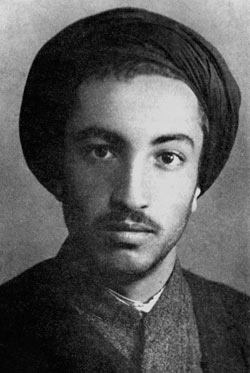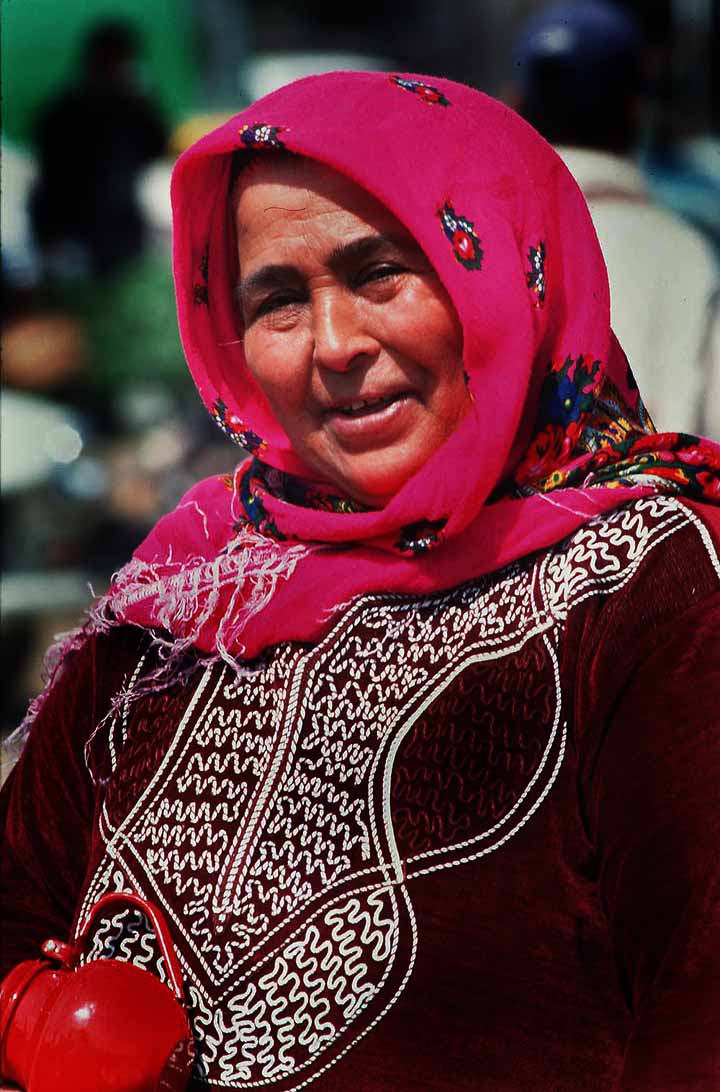|
Fadayan-e Islam
Fadā'iyān-e Islam ( fa, فدائیان اسلام, also spelled as ''Fadayan-e Islam'' or in English "Fedayeen of Islam" or "Devotees of Islam" or literally "Self-Sacrificers of Islam") is a Shia fundamentalist group in Iran with a strong activist political orientation. The group was founded in 1946, and registered as a political party in 1989. An alleged terrorist organization,FEDĀʾĪĀN-E ESLĀM. (1999). In Encyclopædia Iranica. Retrieved from http://www.iranicaonline.org/articles/fedaian-e-esla ''The Fedāʾīān’s importance in Persian politics was due to several related factors. First, they were exceptionally successful as a rebel organization'' it was founded by a theology student nicknamed Navvab Safavi. Safavi sought to purify Islam in Iran by ridding it of 'corrupting individuals' by means of carefully planned assassinations of certain leading intellectual and political figures.Taheri, ''The Spirit of Allah'', (1985), p. 98 After a series of successful killings and ... [...More Info...] [...Related Items...] OR: [Wikipedia] [Google] [Baidu] |
Green In Islam
The color green ( ar, أخضر, translit='akhḍar) has a number of traditional associations in Islam. In the Quran, it is associated with paradise. Green was adopted by the Shi'ites, and remains particularly popular in Shi'ite iconography, but it is also widely used in by Sunni states, notably in the flag of Saudi Arabia and the flag of Pakistan. There is also an Islamic green color which has the hex #009000. Quran Al-Khidr ("The Green One") is a Qur’anic figure who met and traveled with Moses. The Green Dome, traditional site of the tomb of Muhammad, was painted green on the order of Sultan Abdul Hamid II (r. 1876–1909). Islamic flags Green flags were adopted by Shi'ites in the early Islamic period, although the most common Shi'a color was white, in symbolic opposition to Abbasid black. Thus in 817, when the Abbasid caliph al-Ma'mun adopted the Alid Ali al-Ridha a his heir-apparent, he also changed the dynastic color from black to green. The change was reverted ... [...More Info...] [...Related Items...] OR: [Wikipedia] [Google] [Baidu] |
Navvab Safavi
Sayyid Mojtaba Mir-Lohi ( fa, سيد مجتبی میرلوحی, 1924 – 18 January 1956), more commonly known as Navvab Safavi ( fa, نواب صفوی), was an Iranian Shia cleric and founder of the Fada'iyan-e Islam group. He played a role in assassinations of Abdolhossein Hazhir, Haj Ali Razmara and Ahmad Kasravi. On 22 November 1955, after an unsuccessful attempt to assassinate Hosein Ala', Navvab Safavi and some of his followers were arrested. In January 1956, Safavi and three other members of Fada'iyan-e Islam were sentenced to death and executed. Early life Born in Khani Abad, South of Tehran into a well-known religious family in 1924, he received his primary education in Tehran and left school after eighth grade when his father died.Farhad Kazemi, "The Fada'iyan-e Islam: Fanaticism, Politics and Terror" in Said Amir Arjomand (ed.), ''From Nationalism to Revolutionary Islam'', SUNY Press (1984), p. 160 His father, Seyyed Javad Mir-Lohi, was a cleric who was put in jail ma ... [...More Info...] [...Related Items...] OR: [Wikipedia] [Google] [Baidu] |
Islamic Prophet
Prophets in Islam ( ar, الأنبياء في الإسلام, translit=al-ʾAnbiyāʾ fī al-ʾIslām) are individuals in Islam who are believed to spread God in Islam, God's message on Earth and to serve as models of ideal human behaviour. Some prophets are categorized as messengers ( ar, رسل, rusul, sing. , ), those who transmit Revelation, divine revelation, most of them through the interaction of an Islamic view of angels, angel. Muslims believe that many prophets existed, including many not mentioned in the Quran. The Quran states: "And for every community there is a messenger." Belief in the Islamic prophets is one of the Iman (concept)#The Six Articles of Faith, six articles of the Islamic faith. Muslims believe that the first prophet was also the first human being, Adam in Islam, Adam, created by God. Many of the revelations delivered by the 48 prophets in Judaism and many prophets of Christianity are mentioned as such in the Quran but usually with Arabic versions of ... [...More Info...] [...Related Items...] OR: [Wikipedia] [Google] [Baidu] |
Sayyid
''Sayyid'' (, ; ar, سيد ; ; meaning 'sir', 'Lord', 'Master'; Arabic plural: ; feminine: ; ) is a surname of people descending from the Prophets in Islam, Islamic prophet Muhammad through his grandsons, Hasan ibn Ali and Husayn ibn Ali, sons of Muhammad's daughter Fatimah, Fatima and his cousin and son-in-law Ali (Ali ibn Abi Talib). While in the Islamic golden age, early islamic period the title Al-Sayyid was applied on all the members of the of Banu Hashim, banu hashim, the tribe of Muhammad. But later on the title was made specific to those of Hasanids, Hasani and Hussaini descent, Primarily by the List of Fatimid caliphs, Fatimid Caliphs. Female ''sayyids'' are given the titles ''sayyida'', ''syeda'', ''alawiyah'' . In some regions of the Islamic world, such as in Iraq, the descendants of Muhammad are given the title ''Emir, amīr'' or ''mīr'', meaning "aristocrats", "commander", or "ruler". In Shia Islam the son of a non Sayyid father and a Sayyida mother claim ... [...More Info...] [...Related Items...] OR: [Wikipedia] [Google] [Baidu] |
Amir Taheri
Amir Taheri ( fa, امیر طاهری; born 9 June 1942) is an Iranian-born columnist and activist author based in Europe. His writings focus on the Middle East affairs and topics related to Islamic terrorism. He has been the subject of many controversies involving fabrications in his writings, most notable of which was the 2006 Iranian sumptuary law controversy. He is the current Chairman of Gatestone Institute in Europe. Career Taheri was born in Ahvaz. His biography at Benador Associates stated that he was educated in Tehran, London, and Paris. He was executive editor-in-chief of ''Kayhan,'' a "strongly pro-Shah"Schwarz, Jonathan (18 November 2007The Amir Taheri Story '' Mother Jones'' Iranian daily, from 1972 to 1979, and a member of the board of trustees of the Iranian Institute for International Political and Economic Studies in Tehran from 1973 to 1979. Taheri has also been editor-in-chief of ''Jeune Afrique'' (1985-1987), Middle East correspondent for the London ''Sund ... [...More Info...] [...Related Items...] OR: [Wikipedia] [Google] [Baidu] |
Ahmad Kasravi
Ahmad Hokmabadi Tabrizi ( fa, سید احمد حکمآبادی تبریزی, Ahmad-e Hokmabadi-ye Tabrizi; 29 September 1890 – 11 March 1946), later known as Ahmad Kasravi ( fa, احمد کسروی, Ahmad-e Kasravi), was a pre-eminent Iranian historian, jurist, linguist, theologian, a staunch secularist and intellectual. He was a professor of law at the University of Tehran, as well as an attorney and judge in Tehran, Iran. Born in Hokmavar (Hokmabad), Tabriz, Iran, Kasravi was an Iranian Azerbaijani. During his early years, Kasravi enrolled in a seminary. Later, he joined the Iranian Constitutional Revolution. He deserted his clerical training after this event and enrolled in the American Memorial School of Tabriz. Thenceforward he became, in Roy Mottahedeh's words, "a true anti-cleric." Kasravi was the founder of a political-social movement whose goal was to build an Iranian secular identity. The movement was formed during the Pahlavi dynasty. Kasravi authored more than 7 ... [...More Info...] [...Related Items...] OR: [Wikipedia] [Google] [Baidu] |
Anti-clerical
Anti-clericalism is opposition to religious authority, typically in social or political matters. Historical anti-clericalism has mainly been opposed to the influence of Roman Catholicism. Anti-clericalism is related to secularism, which seeks to separate the church from public and political life. Some have opposed clergy on the basis of moral corruption, institutional issues and/or disagreements in religious interpretation, such as during the Protestant Reformation. Anti-clericalism became extremely violent during the French Revolution because revolutionaries claimed the church played a pivotal role in the systems of oppression which led to it. Many clerics were killed, and French revolutionary governments tried to put priests under the control of the state by making them employees. Anti-clericalism appeared in Catholic Europe throughout the 19th century, in various forms, and later in Canada, Cuba, and Latin America. According to the Pew Research Center several post-communist ... [...More Info...] [...Related Items...] OR: [Wikipedia] [Google] [Baidu] |
Hijab
In modern usage, hijab ( ar, حجاب, translit=ḥijāb, ) generally refers to headcoverings worn by Muslim women. Many Muslims believe it is obligatory for every female Muslim who has reached the age of puberty to wear a head covering. While such headcoverings can come in many forms, hijab often specifically refers to a cloth wrapped around the head, neck and chest, covering the hair and neck but leaving the face visible. The term was originally used to denote a partition, a curtain, or was sometimes used for the Islamic rules of modesty. This is the usage in the verses of the Qur'an, in which the term ''hijab'' sometimes refers to a curtain separating visitors to Muhammad's main house from his wives' residential lodgings. This has led some to claim that the mandate of the Qur'an applied only to the wives of Muhammad, and not to the entirety of women. Another interpretation can also refer to the seclusion of women from men in the public sphere, whereas a metaphysical dimens ... [...More Info...] [...Related Items...] OR: [Wikipedia] [Google] [Baidu] |
Sharia
Sharia (; ar, شريعة, sharīʿa ) is a body of religious law that forms a part of the Islamic tradition. It is derived from the religious precepts of Islam and is based on the sacred scriptures of Islam, particularly the Quran and the Hadith. In Arabic, the term ''sharīʿah'' refers to God's immutable divine law and is contrasted with ''fiqh'', which refers to its human scholarly interpretations. In the historical course, fiqh sects have emerged that reflect the preferences of certain societies and state administrations on behalf of people who are interested in the theoretical (method) and practical application (Ahkam / fatwa) studies of laws and rules, but sharia has never been a valid legal system on its own. It has been used together with " customary (Urf) law" since Omar or the Umayyads. It may also be wrong to think that the Sharia, as a religious argument or belief, is entirely within or related to Allah's commands and prohibitions. Several non-graded crimes are ... [...More Info...] [...Related Items...] OR: [Wikipedia] [Google] [Baidu] |
Islamism
Islamism (also often called political Islam or Islamic fundamentalism) is a political ideology which posits that modern states and regions should be reconstituted in constitutional, economic and judicial terms, in accordance with what is conceived as a revival or a return to authentic Islamic practice in its totality. Ideologies dubbed Islamist may advocate a " revolutionary" strategy of Islamizing society through exercise of state power, or alternately a "reformist" strategy to re-Islamizing society through grassroots social and political activism. Roy, ''Failure of Political Islam'', 1994: p. 24 Islamists may emphasize the implementation of sharia, pan-Islamic political unity, the creation of Islamic states, or the outright removal of non-Muslim influences; particularly of Western or universal economic, military, political, social, or cultural nature in the Muslim world; that they believe to be incompatible with Islam and a form of Western neocolonialism. Some a ... [...More Info...] [...Related Items...] OR: [Wikipedia] [Google] [Baidu] |
Nationalist
Nationalism is an idea and movement that holds that the nation should be congruent with the state. As a movement, nationalism tends to promote the interests of a particular nation (as in a group of people), Smith, Anthony. ''Nationalism: Theory, Ideology, History''. Polity, 2010. pp. 9, 25–30; especially with the aim of gaining and maintaining the nation's sovereignty ( self-governance) over its homeland to create a nation-state. Nationalism holds that each nation should govern itself, free from outside interference ( self-determination), that a nation is a natural and ideal basis for a polity, and that the nation is the only rightful source of political power. It further aims to build and maintain a single national identity, based on a combination of shared social characteristics such as culture, ethnicity, geographic location, language, politics (or the government), religion, traditions and belief in a shared singular history, and to promote national unity or solida ... [...More Info...] [...Related Items...] OR: [Wikipedia] [Google] [Baidu] |








